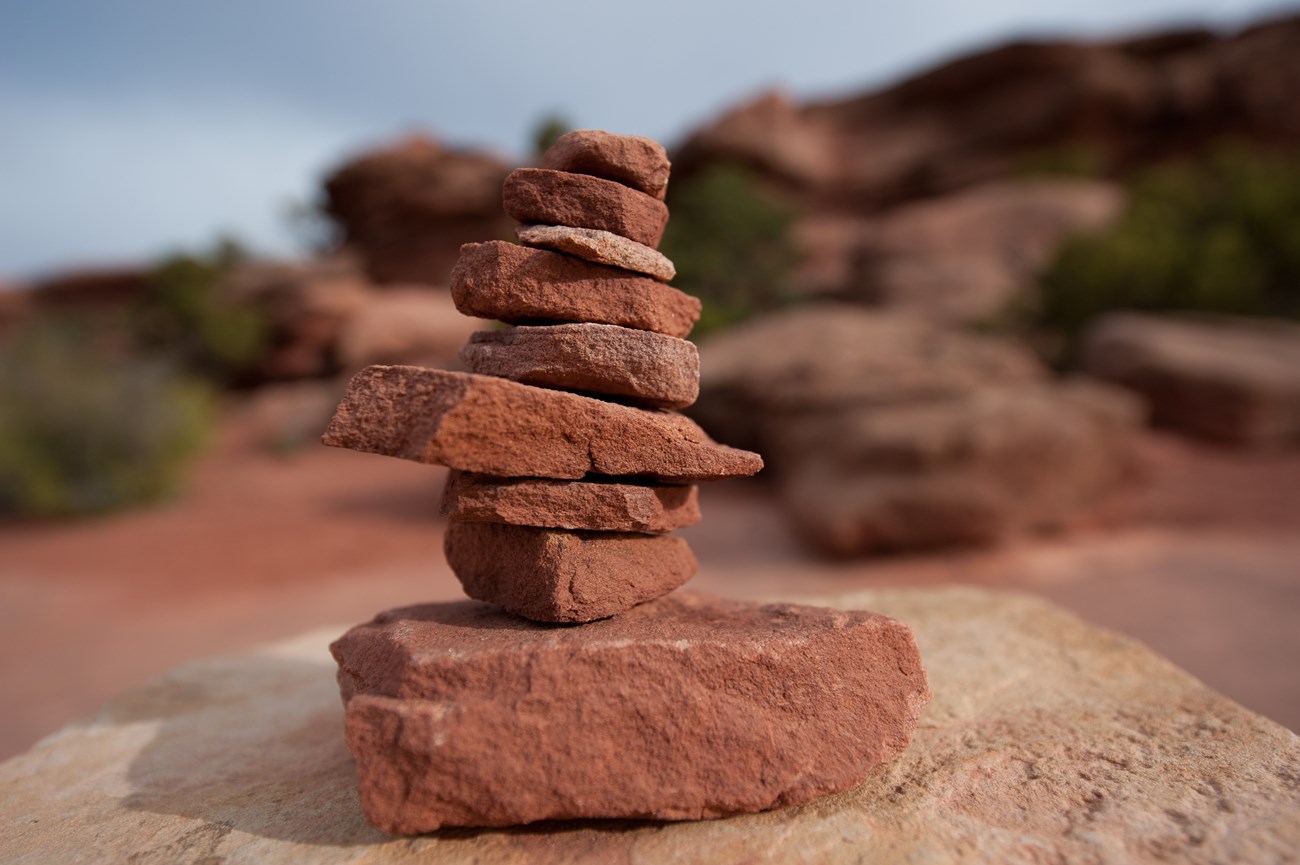Last updated: December 23, 2024
Article
I Didn't Know That!: Rock Cairns

What are those stacks of rocks I see on my hike?
Have you ever come across strange stacks of rocks while hiking in national parks? Maybe you wondered what they are and if they mean anything. Wonder no more—these rock piles are called cairns and often mark hiking routes in parks.
NPS Photo
Know Before You Go
The rock cairns at national parks like El Malpais, Hawaiʻi Volcanoes, and Acadia are carefully maintained by park staff to keep hikers like you on the correct path. Cairns can have different shapes like the ones on the east side trails in Acadia. They are called Bates cairns named after Waldron Bates, lead author of the hiking map still referenced to create today’s trail maps. Then there are the more conical shaped cairns like you would see at El Mapais National Monument that mark an ancient path through the lava along the Zuni-Acoma Trail. If you’re unsure about following cairns on your hike, ask a returning hiker or a park ranger.
Other parks, like Capitol Reef National Park in Utah, don’t build or maintain rock cairns and warn visitors to not rely on these rock piles to guide their hike. Any rock cairns are ornamental and can often become a problem for hikers who think they are supposed to follow them. Before visiting a park check out their website for information on their hiking trails and signage.

NPS/Neal Herbert
What You Can Do
Each park has a different way it maintains trails and cairns; however, they all have the same rule: If you come across a cairn, do not disturb it. Don’t knock it down or add to it. Follow the guidelines from the Leave No Trace Center for Outdoor Ethics to ensure future hikers can navigate the trail and prevent damage to the landscape:
-
Do not tamper with cairns – If an intentional cairn is tampered with or an unauthorized one is built, then future visitors may become disoriented or even lost.
-
Do not build your own cairns – Moving rocks disturbs the soil and makes the area more prone to erosion. Disturbing rocks also disturbs fragile vegetation and micro ecosystems.
-
Do not add to existing cairns – Authorized cairns are carefully designed. Adding to the pile can actually cause them to collapse.

Pass It On!
Did you learn something new? Pass it on! Protecting our parks and the resources in them is a job for us all, but there’s no way for everyone to be an expert in everything. That’s why sharing knowledge is so important! The next time you see someone stacking rocks, you can fill them in and assure them it’s ok to admit - “I didn’t know that!”
Download or screenshot this card to share with a friend or help you remember
Cairns are stacks of rocks that can be used to mark trails.
But not all parks use cairns as trail guides.
Check a park's website and trail map to see if they use and maintain rock cairns before you rely on them
to guide your hike.
What you can do!
- Do not tamper with cairns.
- Don't build your own cairns.
- Do not add to existing cairns.
